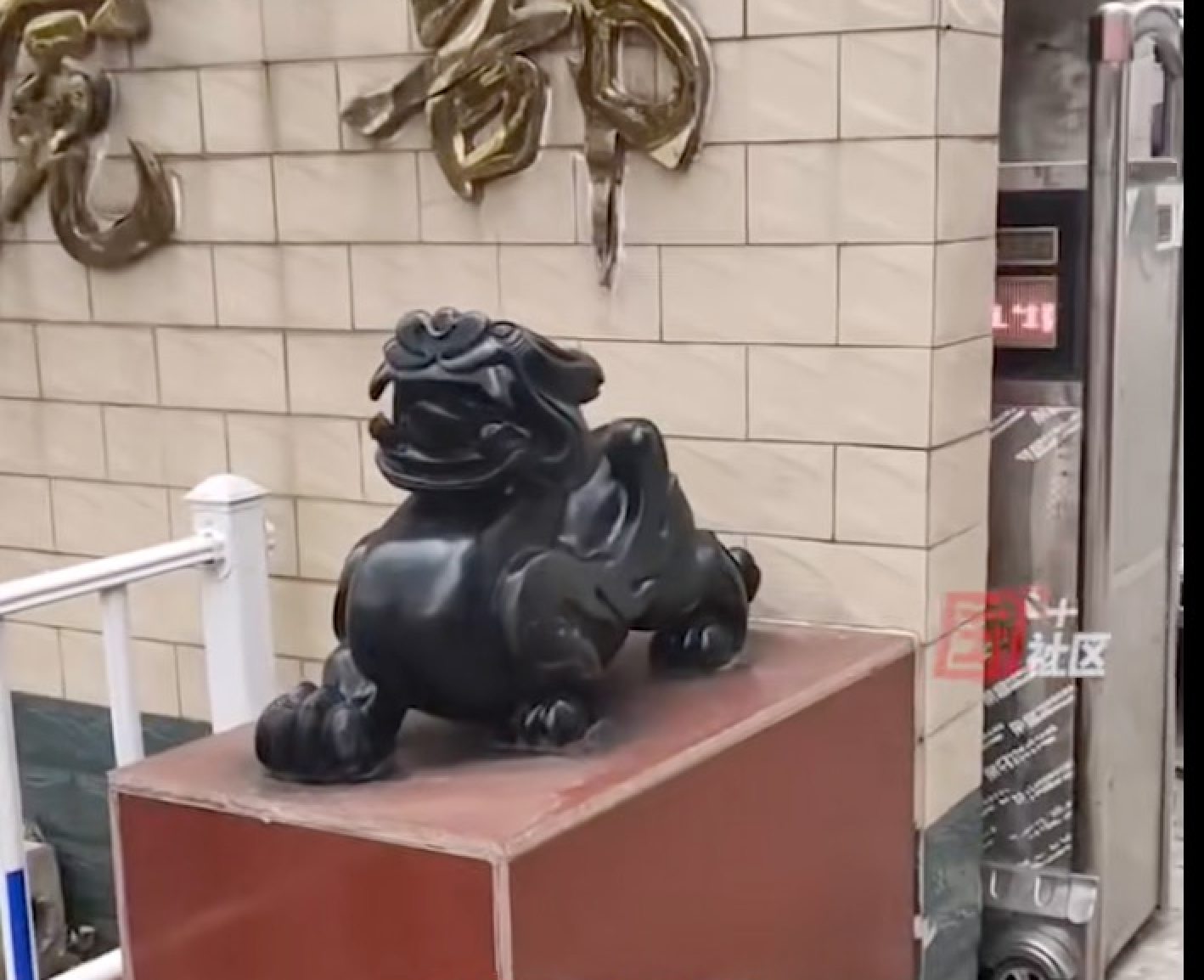
China hospital in firing line over fears that mythical wealth gathering ‘fortune beast’ statues could harm patients
- Mythical creature, feng shui symbol, eats gold and silver, has no anus
- Concern expressed that figures mean patients will not be discharged
A hospital in China has attracted controversy for placing two black pixiu statues at the entrance of its inpatient department.
Pixiu is a mythical Chinese beast and a feng shui symbol said to attract and keep wealth. It has a big mouth that mostly eats gold and silver, yet it has no anus, which indicates a great fortune coming in but not going away.
Some online observers have expressed concern about the statues being placed outside a hospital because they think that implies the patients will not be discharged.
On January 23, staff at Yuzhou Second People’s Hospital in central China’s Henan province, told the mainland media outlet, Guoshequ, that the statues had been there for more than two decades, and in all that time no one had shown concern.
They said the statues have now been removed.

Pixiu, which is also known as “fortune beast”, is one of the five auspicious Chinese mythological creatures, along with the dragon, phoenix, turtle, and qilin.
The earliest depictions of the creature can be found in Han dynasty (206BC-220AD) books.
The story goes that pixiu is one of the Dragon King’s children, who was favoured by its father and also the Jade Emperor due to the noble temperament it gained from consuming treasure.
However, the creature once ate too much at the Jade Emperor’s birthday feast, and relieved its bowels in his palace. The emperor was so angry that he hit pixiu on the bottom, accidentally removing its anus.
Pixiu statues are now commonly seen in front of restaurants and the homes of business owners, they are also added to bracelets, to attract greater fortune.
There are rules about the placing of pixiu statues to maximise their effect.
For example, they must always be in pairs and should be placed in front of gates facing away, so their huge mouths can suck in wealth from outside.

It is also common for businesspeople to wear pixiu charms made of gold, silver or jade on a bracelet.
They should be worn on the left wrist because feng shui states that the energy force, chi, flows into the left side of the body and out of the right.
However, some believe children and the elderly should avoid wearing pixiu as the beast has a strong energy that can overpower the physically vulnerable.

